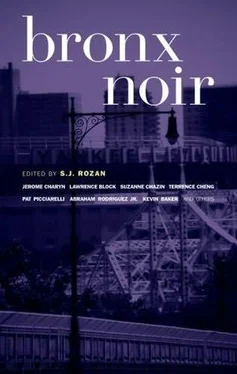He walked and smoked and thought again about the sickly girl who had not had enough money for her food. It was her wrists and her neck that had stayed in his mind, and how her hair was so thin like it might fall out of her head. And he remembered the ship, the woman who had been one of the few wives on board. Three hundred of them packed into the freight, and these two men (one taller, the other very short) started to squawk over a mess made in someone’s space. He watched as they argued, did not try to stop it. They had been on the ship for over two months, and below deck, amongst the hundreds of compartments and partitioned areas they had created with cardboard and hanging shirts and towels and clothes, how could anyone tell whose mess was whose? In one corner were big buckets filled with piss and shit that were emptied each day, puddles of waste on the floor where people had spilled. In another corner on a rusted table they tried to cook with two burners and two big propane tanks, the floor littered with empty cans, filthy rags, and ripped empty boxes.
The floor and air stank with their sweat and metal and waste, but still the two men argued and accused. Then they fought.
It was not the first fight that had broken out. People gathered in a circle, some yelling, shouting. Then the tall one had both hands around the short one’s throat, choking him down to his knees until his eyes fluttered and a bubbly foam dribbled from his lips. The short one’s wife came from behind, hitting the tall man on the back of the head with double-hammer fists until he had no choice but to turn and hit her in the face to make her stop.
The short man lay there gasping, twitching. The tall one turned and looked at the woman lying on the ground. She had bobbed stringy hair, her shirt filthy, too big for her, hanging down off her shoulder. Her neck so thin like a sick bird or child. The tall one reached down and began pulling at the legs of her pants and then she was bare.
He knew he should step in, but he did not. No one did.
When the tall man finished — it did not take long — he stood and pulled his pants up, turned and saw the other man still lying on the ground. He spit on the short man, and then moved through the crowd to the other end of the hold, where he disappeared inside a wall of faces. When the short one came to and saw his wife, he gathered her into a corner where he held her and wept.
A world unto itself: no ruler, no rules.
In the morning they found the woman by the kitchen area. She had used the lid of a rusty can to carve open her wrists. Her bottom still naked, she sat with her eyes open against the wall in a wide dark puddle. The short man was dead too, no signs of trauma beyond what he had suffered during the fight. He had just stopped living. No one knew if he or his wife had died first.
They were still far enough out at sea to dump the bodies, so he was picked to prepare the woman and her husband on the deck to make sure they sank and stayed sunk. He tied them together with rope, stuffed their clothes with any random refuse or wood or metal he could find. Then he rolled them overboard and thought at least they had finished their voyage together.
When he got back to the apartment he found his neighbor knocking on his door, an old woman with white hair and leathery wrinkled skin. A few times she had offered him food — yellow rice with beans and some salty shredded meat — that he gladly accepted.
Now she spoke very fast, kept poking up the corners of her own eyes, then flashing two fingers, then pointing at the floor. She did this over and over again. Finally he took her wrists in his hands and smiled at her and nodded. “Okay,” he said. “Sank you.” She took a breath and shrugged, then went back to her own apartment.
He could still smell the perfume of the whore on his skin, so he took another shower. Then he turned on the television and sat on the mattress. He knew what the old woman had been trying to tell him: Two men with slanted eyes had come looking for him. This was not a shock or surprise. Since his first steps here, in this new place, this new world, he had known that they would find him, that someone would.
Here the dreams were always the same: the taste of the water, the bubble of salt and surf, smoke and gas and oil in his nose and mouth, leaking down his throat. Knowing that his eyes were open in the water and yet all he could see was black; the floating, the flash and flail of his limbs. Was he watching his own death? He did not know then, but it was what he felt now. He woke in the middle of the night and drank a glass of water. Then he sat in the chair he never sat in, sat by the window smoking and watching the sunrise over the highway.
He thought about home, the person he used to be. How he had grown up in a fishing village in Fujian province, learning to farm as well, to make a living with his hands and back. How his family had no money to send him to school; and how he had come to realize around the age of thirteen that he had no talent for the life that his family and ancestors had paved for him. When his parents died (he was twenty by then), he left.
It took him days to get to Fuzhou, walking and stealing rides with strangers. Finally a truck filled with workers took him into the heat of the big buildings, the lights, the colors, the taste and smell of so many people, so many machines. He was afraid he would be swallowed by it all, that everyone around him would know he was a country boy. He found work in a hotel restaurant cleaning dishes and taking out garbage. He worked as many hours as they would let him, slept little, saved all of his money, but still he did not feel like a rich man.
Then one day in the hotel he was relaxing after his shift. The bar and lounge were half-crowded. A man sat down next to him wearing a dark suit and collared shirt with no tie. The man’s watch shined in the lights around the bar. They began talking, and then the man said, “Have you ever thought about going to America?” His face appeared to be young but his eyes made him look old. They stared at each other.
“No,” he said, “never thought about it.”
The man gave him a card. “Call me if you want to stop wasting your life.”
The man paid his bill and walked out. He looked at the man’s card and called him two days later. He said he did not want to go to America, but wanted to stop wasting his life.
His job was to recruit, to work the city for potential clients. He was trained to spot who and what they were looking for.
“Dressed shabby, looking a little lost. You know, country folk.”
“Is that why you came up to me in the bar?”
The man stared at him and told him to pay attention.
“The police are paid off. So are the officials we need. But don’t be cocky. If you show off they will make an example of you.”
He learned to spot them in crowds, in markets, on the street. He had his pitch, all the facts that anyone in the beginning would need to know: thirty-thousand U.S. total, at least five to ten up front, the rest when you get there. “How?” they would sometimes ask, and he would tell them by boat or by plane. It cost more if you wanted passports and special work papers.
“We know your relatives, we know where you live. We are watching you on both sides. We are taking big risks to give you the chance of a lifetime. Don’t disrespect us. Don’t make us or your family lose face.”
He knew when clients were satisfied. People would find him to thank him, tell him how well their sons and husbands and fathers were doing over there, the riches they were making, the opulent lives they would all someday lead. “He’ll be a citizen in a few years, then he can bring us all over,” one wife told him. “He sends me beautiful clothes and jewelry,” said another. “We’re going to live in a big house with big cars.” He would smile and nod and later more people from the same family, the same clan, would come to him to make the journey. They borrowed money from relatives, from friends, from anyone who could afford to give just a little to send them away to find their dreams. No one talked about the ones who did not make it, who were caught and shipped back, held by police and beaten; then sent back to their villages to pay a huge fine, only to begin planning when they would try again.
Читать дальше












